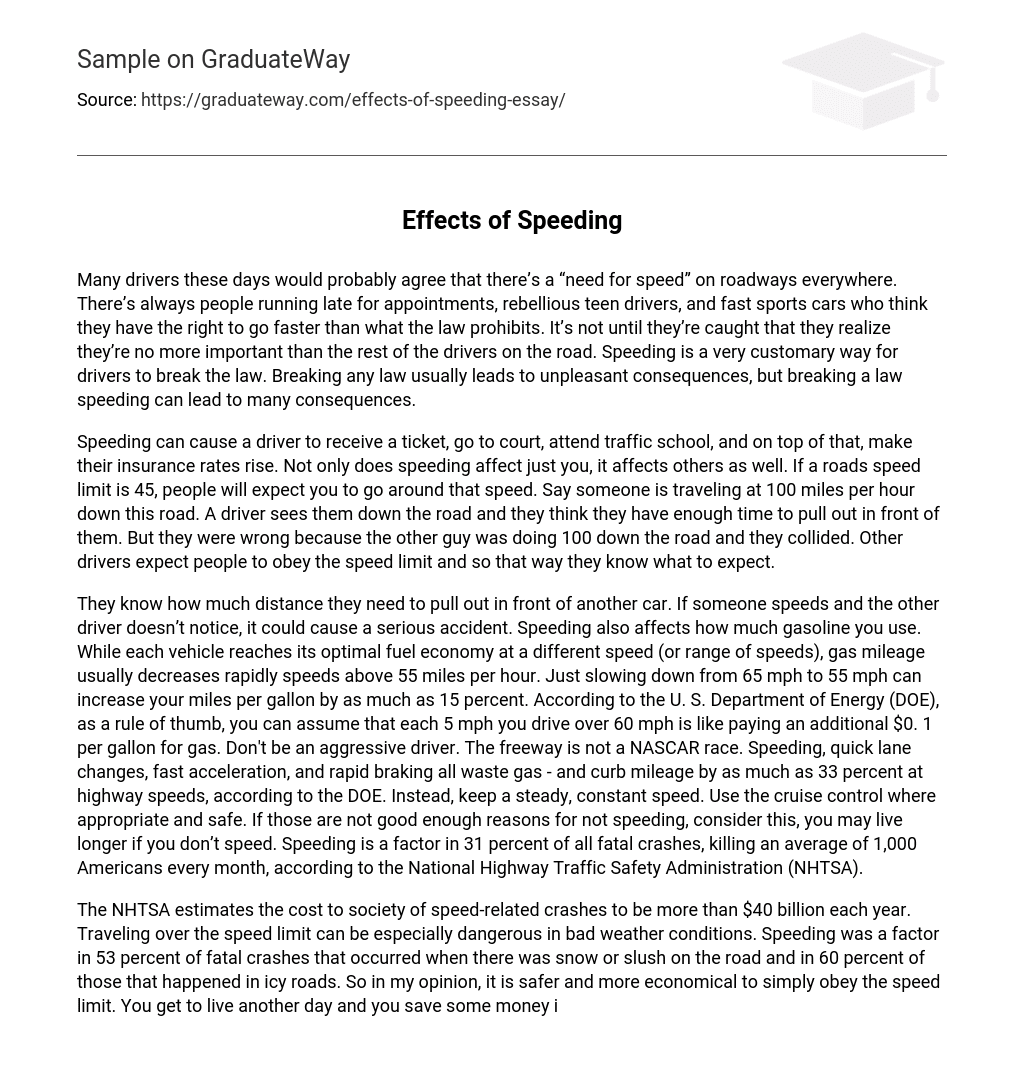There is a widespread desire for increased speed on roads, according to many drivers. This desire arises from various reasons, such as individuals being in a hurry, rebellious teenage drivers, and owners of high-performance sports cars who feel entitled to surpass the legal speed limit. However, these individuals often come to realize their insignificance on the road only when they get caught. Speeding remains a common violation of traffic laws and carries its own set of penalties.
Speeding has various consequences, including receiving a ticket, going to court, attending traffic school, and facing increased insurance rates. Moreover, it not only affects the individual who is driving over the limit but also impacts other drivers on the road. When the speed limit on a road is 45 mph, all drivers are expected to adhere to this restriction. However, if someone chooses to drive at a speed of 100 mph on this specific road, it can lead to miscalculations by other drivers regarding the time they have to safely pull out in front of them. Consequently, this misjudgment has the potential to result in a collision between both vehicles. Therefore, it is crucial for every driver to obey the speed limit so that all motorists know what they can anticipate from one another.
Drivers have an understanding of the necessary distance needed to surpass another vehicle. If one driver speeds while the other fails to notice, it can lead to a severe accident. Speeding also has an impact on fuel consumption. While each vehicle has its own optimal fuel economy at different speeds, gas mileage typically decreases rapidly when exceeding 55 miles per hour. By simply reducing speed from 65 mph to 55 mph, miles per gallon can improve by up to 15 percent.
The U.S. Department of Energy (DOE) states that for every 5 mph driven over 60 mph, there is an additional $0.1 spent on gas per gallon as a general rule.
It is crucial not to drive aggressively on the freeway as it is not meant for NASCAR racing. Speeding, sudden lane changes, rapid acceleration, and abrupt braking all waste fuel and can decrease mileage by up to 33 percent at highway speeds according to the DOE.
Instead, maintain a steady and consistent speed using cruise control when safe and appropriate.
If these reasons are insufficient in discouraging speeding, consider this: refraining from speeding may extend your lifespan. Speeding contributes to approximately 31 percent of all fatal crashes resulting in an average of 1,000 American deaths each month according to the National Highway Traffic Safety Administration (NHTSA).
According to the NHTSA, speed-related crashes result in a societal cost of more than $40 billion per year. Driving above the speed limit is especially dangerous when weather conditions are unfavorable. In fatal crashes that occurred on snowy or slushy roads, speeding was a contributing factor in 53% of cases, and on icy roads, it played a role in 60%. Therefore, it is safer and more financially responsible to obey the specified speed limit, ensuring personal safety and financial savings.





